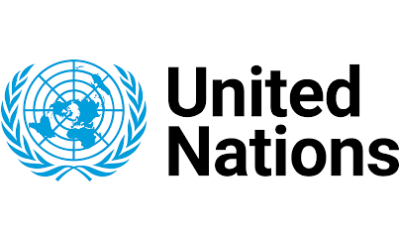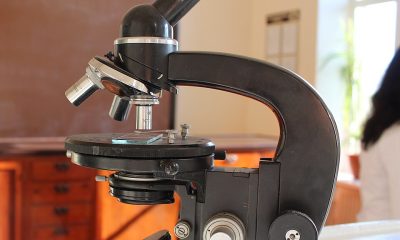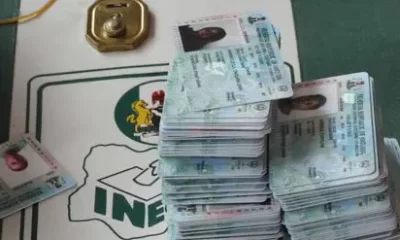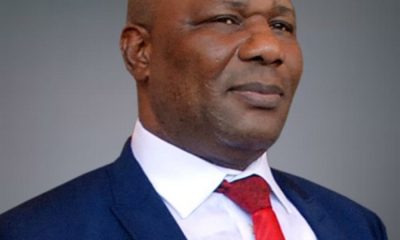Foreign News
UN Member-states Pay Tribute at 9/11 Museum in New York
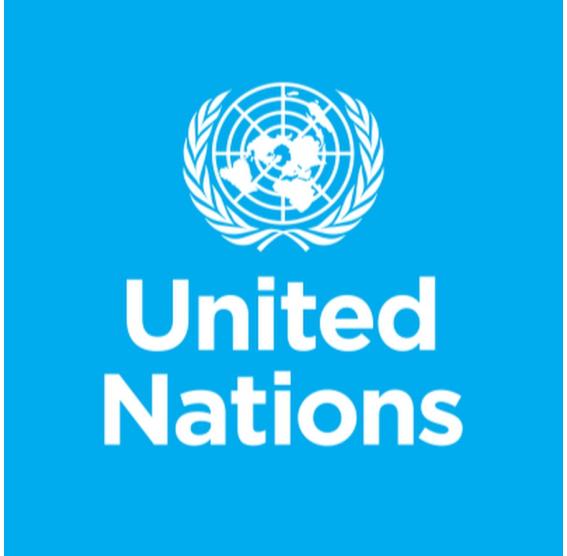
UN nations on Monday paid tribute at the 9/11 Memorial and Museum in New York, to commemorate the 20th anniversary of the September 11 attacks launched against the U.S. that changed the course of history.
UN Counter-Terrorism chief, Vladimir Voronkov, in his message to commemorate the anniversary, said UN would continue to stand in solidarity with all victims of terrorism.
Speaking at the 9/11 Memorial and Museum in downtown Manhattan where the twin towers once stood, Voronkov highlighted the significance of the commemoration.
“We have gathered from all over the world on this sacred ground in the host city of the United Nations to pay tribute to the victims and survivors of the terrible attacks that occurred here just over 20 years ago,” he said.
The special ceremony brought together Heads of State, ministers and delegates representing more than 120 Member States and international organisations, who are in New York for the opening of the 76th UN General Assembly.
Voronkov said the UN was committed to continue placing victims at the heart of the global counter-terrorism effort, to speak for those who can no longer speak, and amplify the voices of survivors.
“We will continue to stand in solidarity with all victims of terrorism. They will not be forgotten. No day shall erase them from the memory of time,” he added.
The commemoration demonstrated the UN commitment to never forget the 2,977 people from over 90 countries whose lives were taken when hijacked airliners brought terror to New York, Washington and beyond, and the thousands more that were injured or sickened.
Ms Alice Greenwald, President and CEO of the 9/11 Memorial and Museum, said “for many, the Memorial is seen as the place where the 21st century began.
“The attacks of September 11, 2001, may have happened here in the United States, but in truth, 9/11 was a global moment.
“Your presence here is a powerful demonstration of global solidarity with the victims of 9/11 and their families, indeed with all victims of terrorism.
“Standing here today, you affirm the imperative of remembrance and underscore the obligation of our shared humanity.
“You recognise that the human impacts of terrorism and extreme violence are universal and collectively acknowledging the absolute illegitimacy of terrorism as a response to political grievance,” Greenwald said.
Expressing sympathy and solidarity with grieving families, José Albares, Spain’s Minister of Foreign Affairs for the European Union and Cooperation, restated commitment to fight terrorism.
Albares, who spoke as co-Chair of the Group of Friends of Victims of Terrorism, restated the “commitment towards our common collaboration to fight against terrorism, and in favour of the victims, their needs and their rights.”
The ceremony included a minute of silence, following which Under-Secretary-General Voronkov and Foreign Minister Albares, laid wreaths in memory of victims of the September 11 attacks, and all victims of terrorism worldwide. (NAN)
Foreign News
Australian Researchers Launch Open-source, Affordable DNA Measurement Device

Australian researchers have created an affordable, open-source device to measure DNA levels using parts made with a standard 3D printer.
The Do-It-Yourself Nucleic Acid Fluorometer (DIYNAFLUOR) offers an affordable alternative to expensive commercial DNA fluorometers, often out of reach for many researchers.
This is according to a statement released on Wednesday by Australia’s University of Queensland (UQ), which led the research.
Fluorometers, vital for DNA sequencing, which itself is essential for disease detection, therapeutic innovation, and species identification, can now be easily built at home.
Thanks to the simple, accessible device developed by UQ’s Australian Institute for Bioengineering and Nanotechnology (AIBN), the statement said.
The device can be built in under a day for around 60 Australian dollars (about 39 dollars) using off-the-shelf electronics and 3D-printed parts.
It’s with free instructions online and no need for advanced skills or specialised tools, said the designer of the device, Will Anderson, at the AIBN.
Once built, the device quantifies DNA by using a light beam to produce a fluorescent response from the dyed DNA present in the sample.
It would then report the DNA concentration to a connected computer, Anderson said.
“This is crucial information that can tell you whether you can proceed with more expensive tests and sequencing,” he added.
Laboratory tests confirmed the device matches the accuracy and sensitivity of costly commercial models, offering an affordable, open-source solution for researchers in resource-limited, remote, or educational settings, said the study.
Foreign News
Trump Imposes 25% Tariff on Indian Goods, Criticizes Ties with Russia

U.S. President Donald Trump said he is imposing a 25 per cent tariff on goods from India starting on Friday.
Writing on his Truth Social platform, Trump sharply criticises New Delhi for its military and energy ties with Russia.
He described India as a “friend” but accused the country of maintaining unfair trade practices that disadvantage U.
S. businesses.India has “strenuous and obnoxious” trade barriers that keep its markets closed to companies, he wrote, adding that its tariffs are “far too high.
”Trump also took aim at India’s relationship with Russia, saying: “They have always bought a vast majority of their military equipment from Russia, and are Russia’s largest buyer of ENERGY, along with China.
In addition to the new tariff, Trump said India would face a financial “penalty” for its purchases from Russia, though he did not provide further details.
Foreign News
Zelensky Announces New Draft Law on Anti-corruption Bodies after Protests

Ukrainian President Volodymyr Zelensky said he has approved the text of a draft law guaranteeing the freedom of two anti-corruption bodies in Ukraine – days after nationwide protests broke out over changes curbing their independence.
Kyiv’s Western partners had also expressed serious concerns over the legislation.
On Thursday, Zelensky seemed to backtrack, saying the new bill was intended to safeguard the independence of Ukraine’s National Anti-Corruption Bureau (Nabu) and Specialised Anti-Corruption Prosecutor’s Office (Sap), and to protect them from Russian influence.
He said the text of the bill was “balanced”, but did not provide any details.
The law passed earlier this week brought Nabu and Sap under the control of the prosecutor general, who is appointed by the president.
At the time Zelensky justified his decision to curtail the bodies’ powers by citing Russian influence. The day before, Ukraine’s security services had carried out searches and arrests targeting alleged Russian spies at the agency.
The passing of the legislation instantly sparked the largest protests since the start of Russia’s full-scale invasion in February 2022 in several cities across Ukraine, with many worrying the law would severely undermine the Nabu and Sap’s authority and effectiveness.
Thousands of people gathered in streets and squares across Ukraine, holding placards calling for the legislation to be vetoed.
Several commentators accused Zelensky of democratic backsliding. Their concerns were further exacerbated when Ukraine’s Western partners signalled their displeasure with the bill.
Ukraine has official EU candidate status and a spokesman for European Commission chief Ursula von der Leyen previously warned Kyiv that the rule of law and the fight against corruption were “core elements” of membership to the bloc.
On Thursday, the Commission said it “welcomed” the Ukrainian government’s decision to take action against the bill.
“We are working [with the Ukrainian government] to make sure that our concerns… are indeed taken into account,” the spokesman said.
Nabu and Sap were created in 2014-15 as one of the requirements set by the European Commission and International Monetary Fund to move towards a relaxation of visa restrictions between Ukraine and the EU.
Writing on Facebook, opposition MP Oleksiy Goncharenko noted Zelensky said that “the independence of anti-corruption institutions must be guaranteed.”
“First we take it away, and then we say that it must be guaranteed. So why was all this necessary?”
In his message on social media on Thursday, Zelensky did not acknowledge the protests or the backlash but said it was “important that we respect the position of all Ukrainians and are grateful to everyone who stands with Ukraine.”





